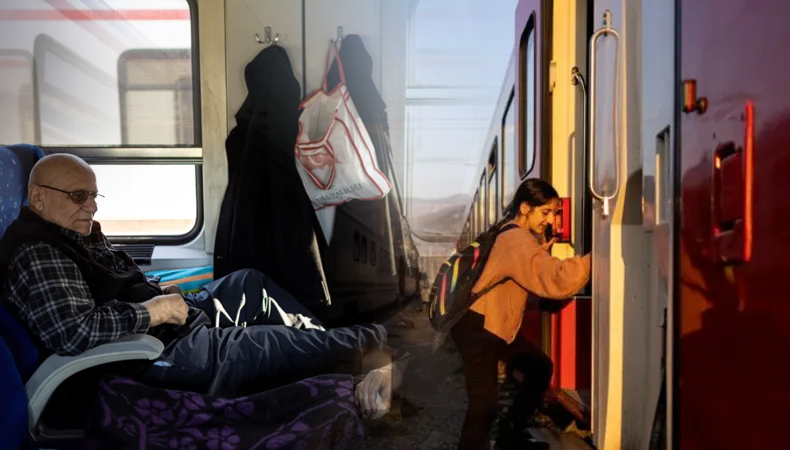Turkish families seek refuge aboard train post earthquake

During the 32 years that Sabriye Karan’s late husband worked for the Turkish national rail company, her daughter Nehir grew up travelling by train. She and Nehir moved into one after powerful earthquakes destroyed her Turkiye home.
Sabriye, who has been living with Nehir, 13, in a two-bed sleeping cabin for the past 18 days, said, “We never anticipated we would live here. Usually, taking the train is a pleasure. But things are different now.
The massive earthquakes in February that killed 50,000 people in Turkey and Syria and left more than 1.5 million people homeless have pushed Turkish authorities to find housing quickly.
In Iskenderun, a port city in the province of Hatay that was severely affected by the earthquakes, survivors have sought refuge in tents, container homes, hotel resorts, and even train carriages. While only minimally damaged, with some wall cracks forming, Sabriye and Nehir are afraid of returning to their third-floor apartment. Authorities have cautioned residents not to enter numerous buildings because of damage from subsequent earthquakes and aftershocks, which have significantly undermined many of them.
Read | Frenchman is still imprisoned in Iran despite being exonerated: Lawyer
The station at Iskenderun is open, but two of the tracks are crammed with waggons carrying hundreds of survivors. Sabriye and Nehir, who arrived first, discovered sleeper cabins. Some people sleep on their backs on seats, like Arafat Ates, 63, and his wife Zeliha, 53.
Yusuf Kurma, 20, and Aysel Ozcelik, 20, were sitting in another compartment and holding hands. After the first shock, the engaged pair raced to find one another. The wedding may now be delayed. When there are so many people dead, we can’t have a wedding, Ozcelik stated.
To aid with boarding the carriages, step ladders and small benches are scattered across the tracks. On rare occasions, a station worker will signal to survivors crossing the tracks that a train is coming.
At first, Sabriye and Nehir would be startled whenever a passing train blew its horn. The 57-year-old law office clerk remarked, “Now we’re used to it.
They have a small cabin that is about the width of a train window. It is warmer at night than a tent and can house a few necessities. At least 18 hours a day are spent indoors, with only brief excursions outside to line up for breakfast and dinner provided by humanitarian organisations.
Their mental health has suffered from the scarce company they have experienced since the earthquake upended their life, according to Sabriye. She was having trouble coping with the death of her spouse before the trauma of the earthquake made it even harder for her to do so in 2020 when he passed away from COVID.




